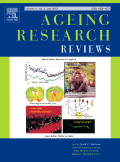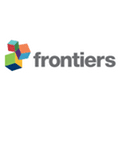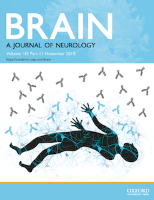
AGEING RESEARCH REVIEWS
metrics 2024
Fostering Collaboration in Aging Research
Introduction
AGEING RESEARCH REVIEWS, published by Elsevier Ireland Ltd, is a prestigious academic journal dedicated to advancing our understanding of the biological, psychological, and societal aspects of aging. With an ISSN of 1568-1637 and E-ISSN of 1872-9649, this journal has established itself as a leading resource in the fields of Aging, Biochemistry, Biotechnology, Molecular Biology, and Neurology, consistently ranked in the Q1 category across these disciplines as of 2023. For researchers, students, and professionals eager to explore cutting-edge findings and innovative methodologies, AGEING RESEARCH REVIEWS gathers comprehensive reviews that facilitate a deeper understanding of age-related processes. Its high impact factor and exceptional Scopus rankings—ranking #1 in Aging and #3 in Neurology—underscore its critical role in shaping contemporary aging research. This journal not only serves as a vital reference point but also fosters a collaborative space for the scientific community focused on improving health outcomes across the life span. Published continuously since 2002 and with a converging focus through 2024, AGEING RESEARCH REVIEWS remains committed to disseminating impactful knowledge that drives progress in our understanding of the aging process.
Metrics 2024
 3.38
3.38 12.50
12.50 13.00
13.00 162
162Metrics History
Rank 2024
Scopus
IF (Web Of Science)
JCI (Web Of Science)
Quartile History
Similar Journals

Lancet Healthy Longevity
Connecting Ideas for a Healthier FutureThe Lancet Healthy Longevity is a premier journal published by Elsevier that focuses on advancing our understanding of healthy aging and longevity through interdisciplinary research. Established in 2020, this Open Access journal is committed to disseminating innovative findings that enhance public and individual health, making it accessible to a global audience. The journal is proud to be recognized with a Q1 ranking in critical categories such as Family Practice, Geriatrics and Gerontology, Health (Social Science), and Psychiatry and Mental Health, indicating its prominent role in shaping contemporary discourse in these domains. As one of the leading titles within the field, it holds an influential position in Scopus rankings, with top placements in Geriatrics and Gerontology as well as Family Practice, thereby reaching the 99th percentile of scholarly impact. The Lancet Healthy Longevity aims to foster collaboration among researchers, healthcare professionals, and policymakers to promote healthy longevity, ultimately supporting the growing aging population worldwide. With its commitment to high-quality research and global accessibility, this journal is a vital resource for those dedicated to improving health outcomes across the lifespan.

Aging Medicine
Transforming Aging Challenges into OpportunitiesAging Medicine, published by Wiley, is a pivotal open-access journal that has been at the forefront of research dedicated to the aging population since its inception in 2018. With a focus on both geriatric care and gerontology, the journal serves as a crucial resource for researchers, healthcare professionals, and students interested in understanding the complexities of aging and the related medical challenges. Although it holds a Q3 quartile ranking in the fields of Aging and Geriatrics and Gerontology according to the 2023 metrics, the journal continues to effectively disseminate valuable research and insights, helping to bridge gaps in knowledge and practice. With an E-ISSN of 2475-0360, it offers an open-access model that ensures broader accessibility to its published content, thus promoting collaboration and innovation across disciplines. As the journal converges towards 2024, it remains committed to evolving with the dynamics of aging research, making it a significant platform for the exchange of ideas and advancements in this essential field.

Frontiers in Aging Neuroscience
Exploring the Neurological Pathways of Aging.Frontiers in Aging Neuroscience, published by FRONTIERS MEDIA SA, is a leading open-access journal dedicated to the field of aging neuroscience, with its ISSN being 1663-4365. Since its inception in 2009, this journal has provided a platform for researchers to disseminate their findings on the neurological aspects of aging, addressing critical issues that impact cognition and overall brain health in the elderly population. With a commendable 2023 impact factor, the journal ranks in the Q2 category in both Aging and Cognitive Neuroscience, positioning it among the top-tier publications in these fields. Notably, it is recognized within Scopus, ranking #32 out of 115 in Neuroscience (Cognitive Neuroscience) and #20 out of 38 in the Aging sector, with corresponding percentiles of 72nd and 48th, respectively. As an open-access journal, it promotes unrestricted access to research findings, fostering collaboration and innovation among the academic community. Researchers, professionals, and students alike can explore cutting-edge studies that contribute to understanding the complexities of neurological aging and work towards improving cognitive health in an aging society.

EXPERIMENTAL AGING RESEARCH
Advancing the Science of AgingEXPERIMENTAL AGING RESEARCH, published by Taylor & Francis Inc., is a leading journal that has been at the forefront of aging research since its inception in 1975. With an ISSN of 0361-073X and an E-ISSN of 1096-4657, this journal has earned a notable reputation, including a Q3 ranking in the field of Aging and impressive Q1 and Q2 rankings in Arts and Humanities and Geriatrics and Gerontology respectively. This positions the journal within the top percentile of its category, highlighting its significant impact and contribution to the scientific community. Covering a broad scope that intersects various disciplines, EXPERIMENTAL AGING RESEARCH aims to disseminate pioneering research, foster interdisciplinary collaboration, and provide a platform for innovative studies that enhance understanding of the aging process. While it currently does not offer Open Access, researchers and academics can access its rich repository of knowledge that spans multiple facets of aging, from physiological changes to psychological impacts. As the field of aging continues to evolve, this journal remains an essential resource for researchers, professionals, and students dedicated to advancing knowledge and practices concerning aging and longevity.

BIOGERONTOLOGY
Illuminating the Path to Healthy AgingBIOGERONTOLOGY, published by SPRINGER, is a premier journal dedicated to the interdisciplinary study of biological aging processes and their implications for health and longevity. With an ISSN of 1389-5729 and an E-ISSN of 1573-6768, this journal features cutting-edge research that addresses critical questions in the fields of aging, geriatrics, and gerontology. Ranking impressively in the top quartiles, particularly as Q1 in Gerontology, BIOGERONTOLOGY is recognized for its contributions to advancing the understanding of aging at both molecular and systemic levels. The journal’s rich repository of scholarly articles provides valuable insights for researchers, healthcare professionals, and students alike, fostering a deeper comprehension of age-related biological mechanisms. Although not an open-access journal, it is highly regarded with an impact factor that reflects its significant role in the academic community. The journal spans from 2000 to 2024, ensuring a broad historical context for its studies, and is based in the Netherlands, with its administrative office located at One New York Plaza, Suite 4600, New York, NY 10004, United States. Engaging with BIOGERONTOLOGY means joining a global dialogue on the science of aging and the implications it holds for humanity.

GeroScience
Pioneering Discoveries in Geriatric HealthGeroScience, published by Springer, is an esteemed open-access journal that focuses on the multidisciplinary field of aging research. Since its inception in 2017, the journal has quickly established itself as a leader in its field, achieving impressive Q1 quartile rankings across various categories, including Aging, Cardiology and Cardiovascular Medicine, Geriatrics and Gerontology, and Complementary and Alternative Medicine, as per 2023 evaluations. With a significant impact factor that underscores its influence and reach in academia, GeroScience aims to disseminate high-quality research that addresses the complex challenges and advancements related to aging. Its accessible publication format fosters greater dissemination of knowledge and encourages collaboration among researchers, practitioners, and students eager to contribute to the growing body of work on age-related health issues. As it continues to thrive, GeroScience remains a pivotal resource for anyone looking to stay at the forefront of aging research.

Physiological Reviews
Fostering Excellence in Physiological Research and AnalysisPhysiological Reviews is a prestigious journal published by the American Physiological Society, dedicated to advancing our understanding of physiology across various domains. With an impressive impact factor that places it in Q1 quartiles for medicine, molecular biology, and physiology as of 2023, this journal is recognized as a leading source of high-quality reviews and research analyses. The journal has been a vital resource for the scientific community since its inception in 1945, providing in-depth and comprehensive insights that are crucial for both scholars and practitioners in the field. Although not an open-access publication, it remains widely accessible through institutional subscriptions, ensuring that crucial research findings are disseminated efficiently. With Scopus rankings that place it in the top percentile across multiple categories, Physiological Reviews continues to be an essential platform for the latest advancements and discoveries in physiology, making it indispensable for researchers, professionals, and students alike.

npj Aging
Connecting scientists and clinicians in the study of aging.npj Aging, published by Nature Publishing Group, is a pioneering journal dedicated to advancing our understanding of the biological, clinical, and social aspects of aging. With an E-ISSN of 2731-6068, this open-access journal aims to foster innovative research and interdisciplinary dialogue among scientists, clinicians, and policy-makers. As of its inception in 2023, the journal has quickly established itself within the scholarly community, ranking 15th in Medicine (Geriatrics and Gerontology) and 12th in Biochemistry, Genetics, and Molecular Biology focusing on Aging, reflecting a strong percentile standing in both categories. The journal provides a platform for disseminating important findings that address the complexities of aging, ensuring accessibility for a broader audience. Located at the Macmillan Building, 4 Crinan St, London, England, npj Aging aspires to be an essential resource for those seeking to enhance their understanding and contribute to the field of gerontology.

BRAIN
Exploring the Frontiers of Neurology and MedicineBRAIN, published by Oxford University Press, stands as a preeminent journal in the realms of neurology and medicine, with a formidable impact factor reflecting its rigorous peer-reviewed standards and significant contributions to the field. With its ISSN 0006-8950 and E-ISSN 1460-2156, this esteemed publication spans over a century of exceptional research, converging from its historical roots in 1878 to current groundbreaking studies. BRAIN boasts a distinguished rank of #8 out of 400 in the Scopus category of Neurology (Clinical), placing it in the 98th percentile of institutions, indicative of its influence and reach. Operating under the Q1 category in both Medicine (Miscellaneous) and Clinical Neurology, the journal is dedicated to fostering interdisciplinary dialogue among researchers, clinicians, and students alike. With a focus on innovative findings and clinical advancements, BRAIN serves as a vital resource for those seeking to deepen their understanding of neurological disorders and the evolving landscape of medical research.

Advances in Gerontology
Exploring the Future of Aging ResearchAdvances in Gerontology is a pivotal academic journal dedicated to the field of gerontology, published by PLEIADES PUBLISHING INC. With its ISSN 2079-0570 and E-ISSN 2079-0589, this journal serves as an essential platform for researchers, healthcare professionals, and students focused on aging and related health issues. Although currently not an open-access journal, it aspires to enrich the scholarly community by disseminating high-quality research from 2011 through 2024. The journal is recognized in the lower quartile of its category, ranking Q4 in both Geriatrics and Gerontology, reflecting its commitment to addressing emerging topics in the aging population despite its lower visibility in the competitive landscape. As it continues to explore critical areas in gerontology, Advances in Gerontology invites contributions that advance knowledge, foster understanding, and inform practices within this essential field of study.